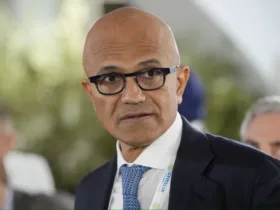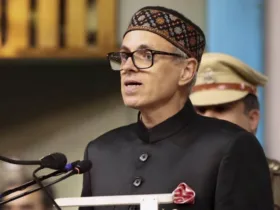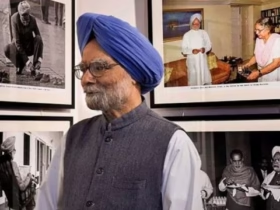Table of Contents
- A Legacy of Musical Brilliance
- A Prodigy’s Journey
- A Master of His Craft
- A Versatile Musician
- A Humble Maestro
- A Lasting Legacy
- A Timeless Legacy
A Legacy of Musical Brilliance by Zakir Hussain
Zakir Hussain, a name synonymous with the rhythmic heartbeat of India, was born in Mumbai in 1951. His lineage, rooted in the Qureshi family, was steeped in the rich tradition of Indian classical music.
From a young age, Zakir Hussain demonstrated an extraordinary connection to rhythm and melody. His childhood was enriched by exposure to Sufi spirituality, particularly at the Mahim shrine, which deeply influenced his approach to music. The combination of his family’s musical heritage and this spiritual foundation would shape the maestro’s remarkable career.
Learn more about Zakir Hussain on his Wikipedia page.
A Prodigy’s Journey of Zakir Hussain
Zakir Hussain’s musical journey began under the tutelage of his legendary father, Alla Rakha. Even as a toddler, he displayed a remarkable aptitude for rhythm. Anecdotes tell of him perfectly clapping along with complex rhythms at an age when most children are just learning to walk.
By the time he was a teenager, Zakir had already begun accompanying seasoned musicians at prestigious concerts. His ability to adapt and enhance the performances of others set him apart as a prodigy.
A Master of His Craft
The elder Hussain, a master of his craft, instilled in his son not only technical proficiency but also a deep understanding of the emotional and spiritual significance of music. Zakir’s discipline and dedication during these formative years laid the groundwork for his revolutionary approach to the tabla.
Hussain’s playing was characterized by a delicate balance of tradition and innovation. His performances brought a fresh perspective to classical music, making it accessible to new generations while honoring its roots.
A Versatile Musician
Hussain’s musical collaborations were as diverse as they were inspiring. When performing with legendary Indian classical artists, he would assume the role of a reverent accompanist, supporting the lead musician with subtle nuances and intricate rhythmic patterns. Yet, when collaborating with international artists like John McLaughlin, George Harrison, or Mickey Hart, he embraced a more experimental role, blending tabla with genres like jazz, rock, and world music.
His groundbreaking fusion band Shakti, which he co-founded with John McLaughlin, is celebrated for its seamless integration of Indian classical music and jazz. These cross-cultural collaborations not only showcased the tabla on a global stage but also redefined its role in modern music.
A Humble Maestro Zakir Hussain
Despite his unparalleled success, Zakir Hussain remained deeply rooted in humility. He often spoke about the importance of respecting one’s teachers and traditions. He credited his achievements to the wisdom passed down by his father and other mentors in the Indian classical music tradition.
His humility extended to his performances, where he treated every stage—be it a small gathering or a global festival—with equal reverence. This sense of respect and gratitude earned him the admiration of fans and fellow musicians alike.
A Lasting Legacy
Hussain’s impact on the world of music extends far beyond his own performances. He was a tireless advocate for Indian classical music, working to promote its beauty and complexity to a global audience. Through his recordings, live performances, and teaching, he ensured that this rich tradition would continue to thrive.
He also established the Zakir Hussain Academy of Performing Arts, where he mentored aspiring musicians. His academy is not just a tribute to his legacy but a vibrant hub of creativity and tradition, nurturing the next generation of artists.
A Timeless Legacy
As the sitar maestro Vilayat Khan once said, “Allah ne Zakir ko bahut sukoon se banaya hai (God made Zakir in a state of complete peaceful equilibrium).” This observation captures the essence of Hussain’s artistry: a harmonious blend of technical brilliance, emotional depth, and spiritual grace.
During a duet with Kathak dancer Birju Maharaj, Hussain famously paused mid-performance to honor Maharaj’s extraordinary expression of silence. This iconic moment exemplified his deep respect for art in all its forms.
Even after his passing, Zakir Hussain’s music continues to inspire, transcending boundaries and connecting people worldwide. His life was a testament to the transformative power of art and the enduring spirit of Indian classical music.










